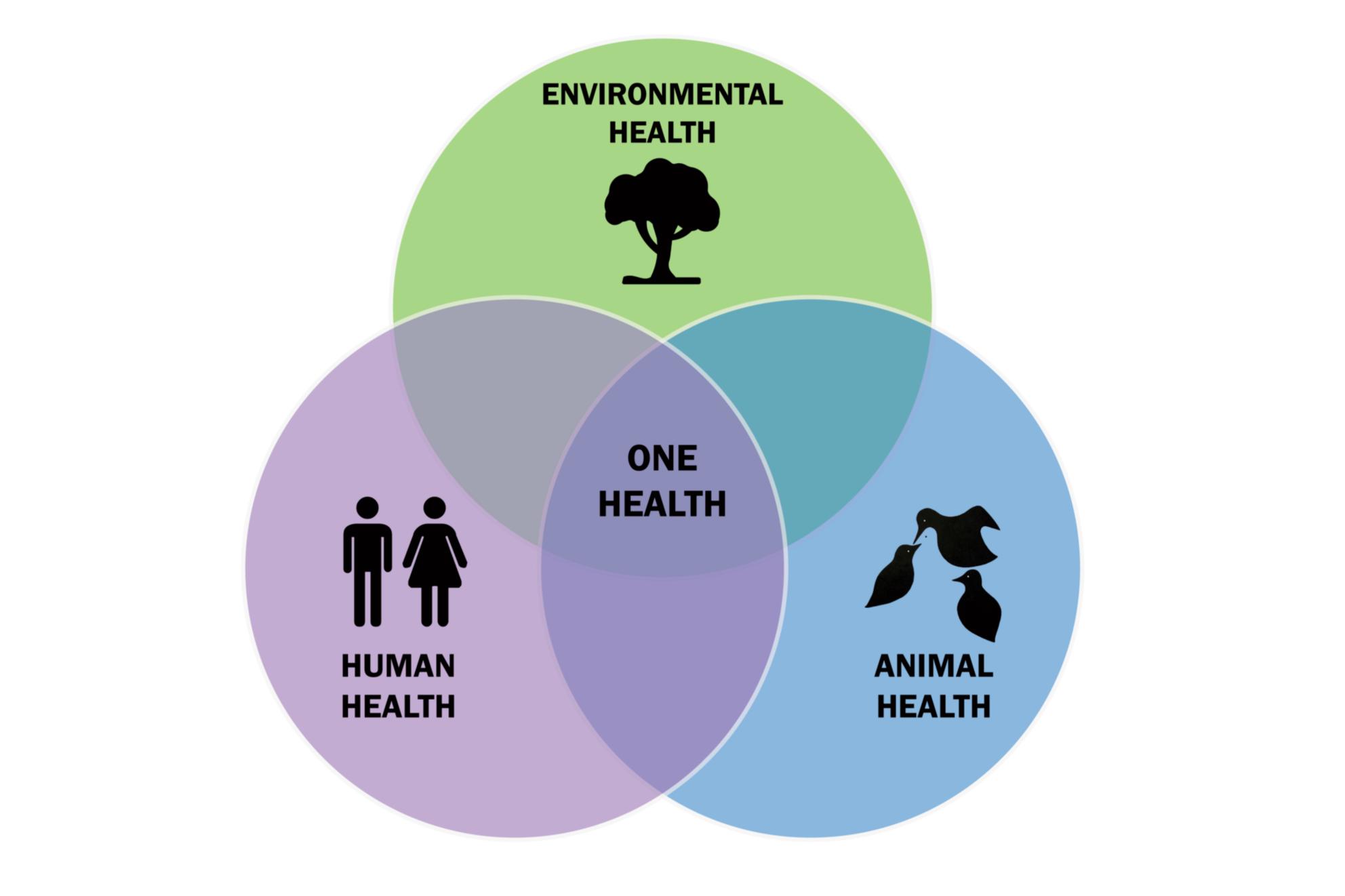What Is the One Health Approach?
In a world where climate change, deforestation, industrial farming, and global travel accelerate the movement of diseases and environmental pressures, it is increasingly clear that health challenges no longer fit neatly into separate boxes. A virus that jumps from wildlife to humans, polluted waterways that affect crops and livestock, antimicrobial resistance driven by overuse of antibiotics – all these issues remind us that our health is intertwined with the natural world around us. This idea sits at the heart of the One Health approach.
The European Commission defines One Health as “an integrated, unifying approach that aims to sustainably balance and optimise the health of people, animals, and ecosystems.” While the concept may sound technical, its message is simple: human health, animal health, and environmental health are deeply interconnected, and solving today’s biggest challenges requires working across these domains rather than treating them separately.
International bodies such as the FAO highlight why this integrated thinking is becoming more urgent – rapid population growth, globalisation, and environmental degradation are making health threats more complex. No single sector, whether public health, veterinary science, conservation, or agriculture, can tackle them alone. Instead, progress depends on better coordination, communication, and collaboration across disciplines.

The human health dimension
Human health is often the entry point for discussions about One Health because people feel the effects of disease outbreaks and environmental degradation directly. The COVID-19 pandemic, antimicrobial resistance, and heat-related illnesses are just a few examples of challenges that demonstrate the need for a broader lens. As the FAO notes, threats to humans can quickly emerge from animals or deteriorating ecosystems. For instance, vector-borne diseases such as dengue or West Nile virus spread more easily when rising temperatures create favourable conditions for mosquitoes. The One Health approach helps policymakers anticipate these risks and build more resilient public health systems that look beyond hospitals and into the environments and species connected to human wellbeing.
The animal health dimension
Animals, both wild and domesticated, play a central role in the One Health framework because they act as a bridge between human populations and the environment. Over 60% of emerging infectious diseases in humans are zoonotic, originating in animals. Livestock production, wildlife trade, and the expansion of urban areas into natural habitats all increase opportunities for pathogens to jump between species. At the same time, healthy animals are essential to sustainable food systems and rural livelihoods. By monitoring animal health, improving veterinary care, and promoting responsible practices such as reduced antibiotic use, societies can reduce the risk of disease spillover and strengthen food security. This integrated view of animal health is a key focus of ongoing work in the EU on better applying the One Health approach across policy areas.
The environmental health dimension
Environmental health forms the third pillar of the One Health approach, and often the one most overlooked. Healthy ecosystems regulate climate, filter water, control pests, and support biodiversity, all of which indirectly protect human and animal health. Environmental degradation, on the other hand, can accelerate disease spread. Deforestation brings wildlife into closer contact with people and livestock; polluted water bodies contaminate crops and fisheries; and climate change influences disease vectors, making outbreaks more frequent and less predictable. As the European Commission has highlighted, addressing environmental pressures is essential to safeguarding long-term health outcomes.
A healthier, interconnected planet
When we recognise how closely humans, animals, and the environment are linked, solutions become more effective and more sustainable. A healthier planet means healthier people and animals, and vice versa. Whether through improved land management, responsible food systems, or integrated policy design, One Health provides a framework for thinking about health in a changing world.